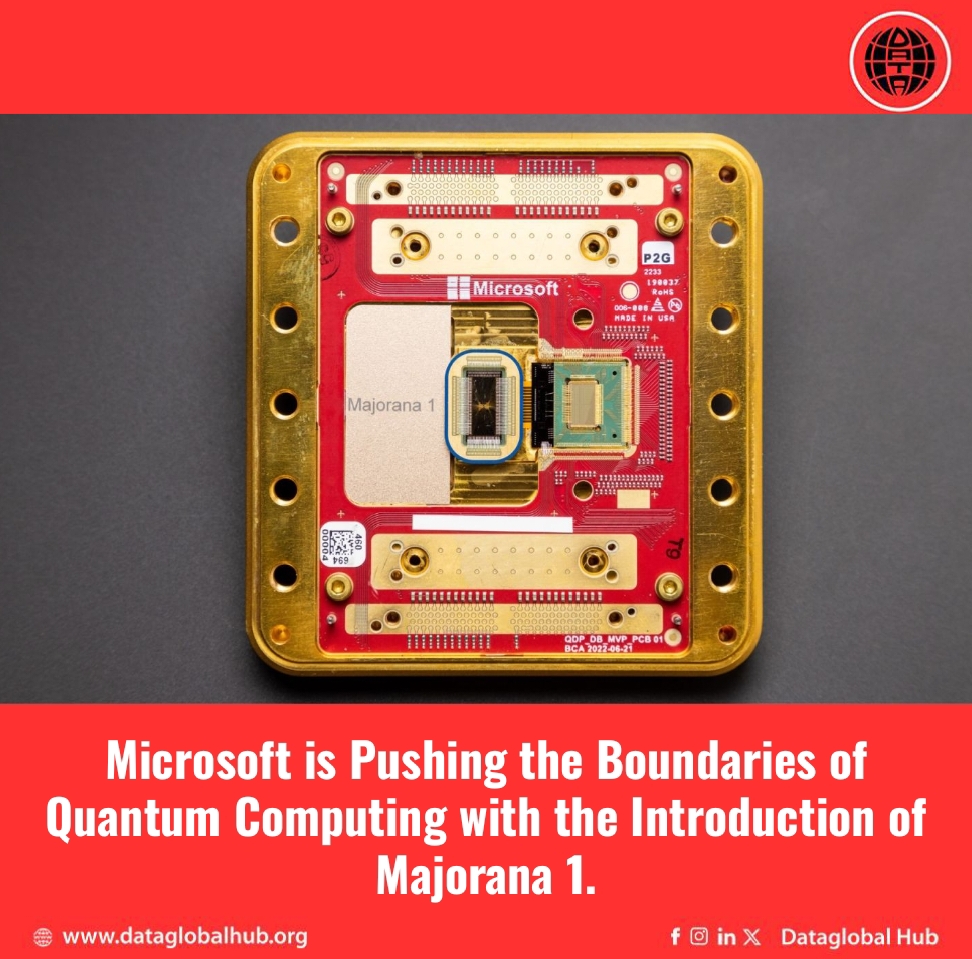
Microsoft is Pushing the Boundaries of Quantum Computing with the Introduction of Majorana 1.
Translate this article
Microsoft has unveiled Majorana 1, the world’s first quantum processor built using a topological core architecture. It features a new material called a topological superconductor, or "topoconductor", which could enable scalable quantum computing capable of solving problems beyond the reach of classical systems. Microsoft plans to develop a Fault-Tolerant Prototype (FTP) in the coming years.
Quantum computing relies on qubits, which leverage quantum properties to perform computations at scales impossible for classical computers. However, scalability and error correction are major challenges. Microsoft’s Majorana 1 processor addresses these issues using a custom-designed material created atom-by-atom by layering indium arsenide (a semiconductor) and aluminum (a superconductor). When cooled to near absolute zero and tuned with magnetic fields, this material forms topological superconducting nanowires that host Majorana Zero Modes (MZMs) at their ends.
MZMs function as qubits, storing quantum information through "parity" whether the nanowire contains an odd or even number of electrons. In a topoconductor, MZMs share unpaired electrons, making them invisible to environmental disturbances, which protects quantum information from interference.
To extract this information, Microsoft has developed a digital switch that couples the nanowire ends to a quantum dot, a device capable of storing an electrical charge. The charge level depends on the parity of the nanowire, and engineers measure it using a microwave-based technique. This approach also simplifies Quantum Error Correction (QEC) by allowing a single quantum dot to connect with multiple qubits via digital pulses, unlike traditional QEC methods that require individual fine-tuning for each qubit.
The Majorana 1 chip is compact enough to fit in a hand and currently contains eight topological qubits, but it is designed to scale up to a million qubits. This scalability could lead to breakthroughs in scientific research, sustainable agriculture, and chemical discovery.
Microsoft’s efforts are supported by DARPA’s Underexplored Systems for Utility-Scale Quantum Computing (US2QC) program, which evaluates quantum solutions that surpass classical computing. The next step in development is a fault-tolerant prototype (FTP). This progress marks a step toward the realization of scalable, fault-tolerant quantum computing and its potential to address complex global challenges.
About the Author

Jason Calloway
Jason Calloway is an AI correspondent from United States of America
Recent Articles
Subscribe to Newsletter
Enter your email address to register to our newsletter subscription!